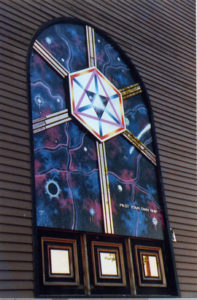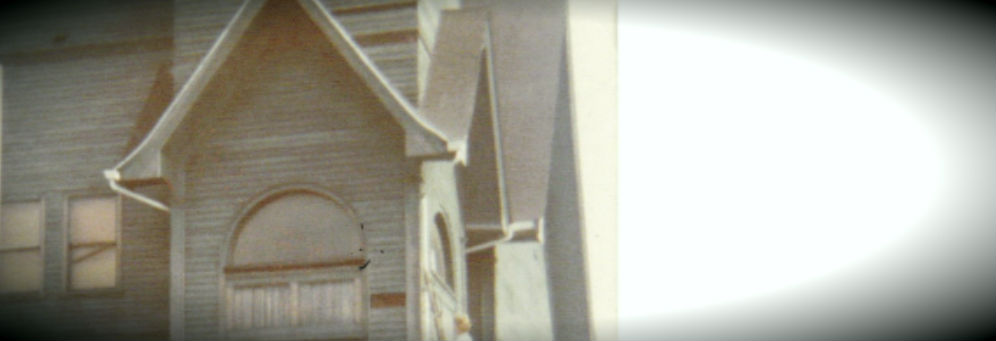Back in 1985 Seattle and its elite were in the news for all the wrong reasons. This started with the release of the documentary “Streetwise” directed by Martin Bell. The film was meant to document the rampant homelessness and desperation, particularly among runway and castaway teenagers, in what was then deemed as America’s most livable city. To add to the atmosphere of gloom, Life magazine published a story soon after to expose Seattle as a haven for runaways and exploitation of minors. The powers that be were hungry for a scapegoat.
“Local clubs became a convenient scapegoat for parents frustrated with rock ‘n’ roll in this city and the problems of teens” – Seattle PI
“There’s tremendous paranoia about some mythical entity called the ‘troublesome teen’”…”There are some destructive teens. But if you expect kids to be rotten, they will be.” – Seattle PI
Since the magazine was on every newsstand and made its presence felt on coffee tables in waiting rooms all over the country, the issue was no longer Seattle’s problem and the national outrage forced the city to act. The sudden teen crisis let the media pump up public sentiments and galvanized them against a common enemy. In the wake of this episode, an advocacy group called “Parents in Arms” took on the challenge acting as a platform for parents to unite and demand action. The organization’s mission, though noble in its conception, missed the true culprits and allowed conjectural fodder to takeover only agitating and mounting anger already brewing in the public. At the time, the Seattle PI noted how “local clubs became a convenient scapegoat for parents frustrated with rock ‘n’ roll in this city and the problems of teens.” Suddenly, an issue of negligence, incompetence, and corruption on the part of the law enforcement, was instead made to seem like the doings of individuals, or an individual to be specific.
“During eight years of relentless attacks, Freeman still managed to bring cohesion to wanting elements of society who needed a place to flourish.” – CEO NOMAD Records
“…rumors surrounding drug and alcohol abuse are exaggerated as well, as we did not observe any such activities” -Royal Gazette (Lynnwood High School newspaper / Seattle Times – May 2, 1985)
The City Council didn’t know how to neutralize the matter, so city Judge Norm Maleng decided to take the matter into his own hands and crafted a scapegoat by the name of George Freeman. Reverend Freeman and his Monastery Universal Life Church, in what was generally an apathetic environment, were trying to offer housing and counseling for the downtrodden street children. He was trying to draw them away from their dangerous and demeaning lives on the streets and give them a purpose to strive for. In a letter to the Seattle Times, then President of NOMAD records wrote, “During eight years of relentless attacks, Freeman still managed to bring cohesion to wanting elements of society who needed a place to flourish. Against this backdrop came ‘The Monastery’s ‘come as you are and join us as we are’ message of enlightenment, which provided a ready stage for this city’s alternative community to come into its own.” But instead of appreciating his efforts and joining hands to tackle the issues surrounding teens, conspiracies were concocted and accusations hurled to take the focus away from the genuine issues that plagued Seattle’s youth. In his book StreetChild, Justin Reed Early notes one such interaction between George Freeman and homeless youth of the 1970s: “I couldn’t believe he was talking to me, let alone offering me a job. He pointed me in the direction of the cleaning crew and I started helping that morning and every weekend after. He still kicked me out during the peak hours, but I didn’t mind since most of my friends were in the parking anyway. He let me back in at closing time to clean and paid me cash.”
was trying to draw them away from their dangerous and demeaning lives on the streets and give them a purpose to strive for. In a letter to the Seattle Times, then President of NOMAD records wrote, “During eight years of relentless attacks, Freeman still managed to bring cohesion to wanting elements of society who needed a place to flourish. Against this backdrop came ‘The Monastery’s ‘come as you are and join us as we are’ message of enlightenment, which provided a ready stage for this city’s alternative community to come into its own.” But instead of appreciating his efforts and joining hands to tackle the issues surrounding teens, conspiracies were concocted and accusations hurled to take the focus away from the genuine issues that plagued Seattle’s youth. In his book StreetChild, Justin Reed Early notes one such interaction between George Freeman and homeless youth of the 1970s: “I couldn’t believe he was talking to me, let alone offering me a job. He pointed me in the direction of the cleaning crew and I started helping that morning and every weekend after. He still kicked me out during the peak hours, but I didn’t mind since most of my friends were in the parking anyway. He let me back in at closing time to clean and paid me cash.”
“I couldn’t believe he [George Freeman] was talking to me, let alone offering me a job. He pointed me in the direction of the cleaning crew and I started helping that morning and every weekend after… He let me back in at closing time to clean and paid me cash.”
– from StreetChild by Justin Reed Early
Mob mentality reduces the capacity for individuals to think for themselves. The ultimate demolition of The Monastery, and demonization of scapegoat George Freeman is a glaring example of unfair judgement in the court of public opinion. From Washington’s Board of Tax Appeals the docket filings (first assessed in 1982) states: “This Board is duly impressed with the attempt of Reverend Freeman and his associates to care for the downtrodden street children with respect to housing and counseling them at the center. This action is commended and we feel that it should be continued.” … “Pursuant to RCW 84.36.020, the Monastery Universal Life Church, Inc. is considered a church by definition of this statute by the Board of Tax Appeals.”
“This Board is duly impressed with the attempt of Reverend Freeman and his associates to care for the downtrodden street children with respect to housing and counseling them at the center. This action is commended and we feel that it should be continued.” … “Pursuant to RCW 84.36.020, the Monastery Universal Life Church, Inc. is considered a church by definition of this statute by the Board of Tax Appeals.”
Between 1982 and 1985 the group Parents in Arms steamrolled through the issues and worked to help shape public opinion away from the negligence of local enforcement. It is important for us all to think critically in this era of fake news and deception and learn from the mistakes of our past.

